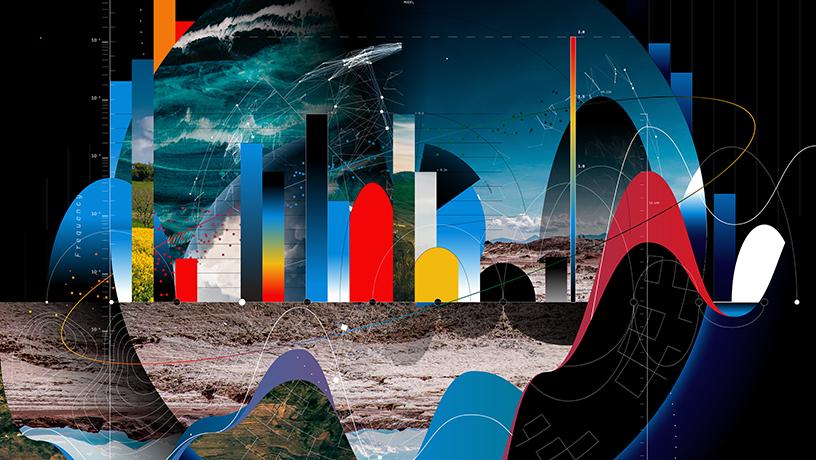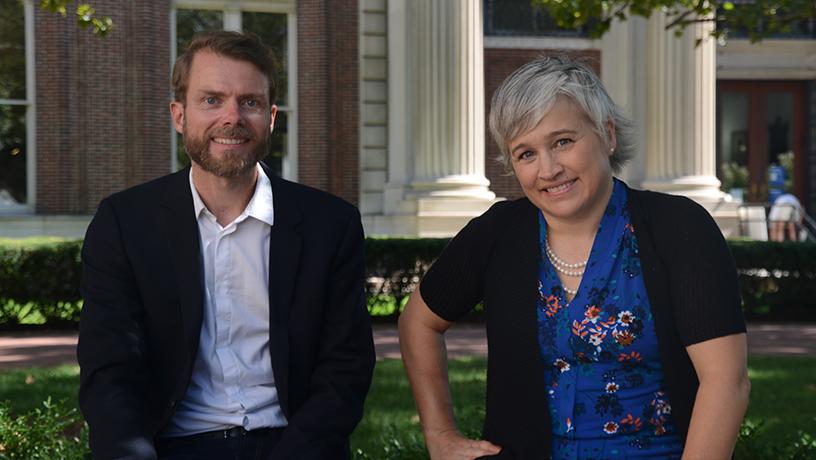Columbia Engineering, Arts and Sciences, and Columbia Climate School to Launch $25M Climate Modeling Center
Funded by the National Science Foundation, the new center will integrate Columbia’s expertise in geoscience, AI, and data science to revolutionize climate projections both locally and globally

The ability to make accurate climate projections has never been more urgent, as we look back at a year when many parts of the world have been buffeted by extreme weather events--droughts, floods, wildfires, rising seas. While there is an ever-growing avalanche of raw data taken from the proliferation of observational technologies continuously monitoring the Earth’s system components--the atmosphere, ocean, land, and cryosphere--the sheer volume of the data has been very difficult to mine.
Now, thanks to a $25 million five-year grant from the National Science Foundation Columbia University and partners are ready to launch a new Science and Technology Center focused on climate modeling, where Columbia researchers will get closer to building better climate models for a safer planet. The center, Learning the Earth with Artificial Intelligence and Physics (LEAP), will be led by Pierre Gentine, Maurice Ewing and J. Lamar Worzel Professor of Earth and Environmental Engineering at Columbia Engineering, who also has a joint appointment in Earth and Environmental Sciences in Arts and Sciences and is affiliated with the Earth Institute in the Climate School.
“This NSF grant addresses a grand challenge facing our global society with long-term impact in many areas. Columbia University is uniquely positioned to develop transformative solutions by leveraging our transdisciplinary strengths and successful track records in convergent research. We are thrilled to be leading this important effort, together with our colleagues across the university and nationwide,” said Shih-Fu Chang, interim dean of Columbia Engineering. “Columbia University has long been at the forefront of climate science and AI research and we are excited to see where our work will take us.”
The expertise and deep knowledge of Columbia researchers and their partners will be the driving force behind the Learning the Earth with Artificial Intelligence and Physics Center. Gentine will be joined by Deputy Director Galen McKinley, a professor of Earth and Environmental Sciences in the Faculty of Arts and Sciences who is based at Lamont-Doherty Earth Observatory, part of the Columbia Climate School.

LEAP will be led by Pierre Gentine, Maurice Ewing and J. Lamar Worzel Professor of Earth and Environmental Engineering, with Deputy Director Galen McKinley, a professor of Earth and Environmental Sciences in the Faculty of Arts and Sciences
They will collaborate closely with Columbia faculty at the Engineering School, Lamont-Doherty Earth Observatory, the Faculty of Arts and Sciences, Teachers College, and Business and Social Work schools. The team will also collaborate with peers at the National Center for Atmospheric Research (NCAR), NASA’s Goddard Institute for Space Studies, New York University (NYU), and Universities of California at Irvine, Minnesota, and Montreal to provide a leap in the quality of the NSF-funded Community Earth System Model.
“The Learning the Earth with Artificial Intelligence and Physics Center will capitalize on the broad, comprehensive expertise we have at Columbia in climate science and machine learning,” Gentine said. “Our goal is to eliminate some of the uncertainty about extreme weather across the globe--how hot the Earth will get and what this will mean for any one of us.”
The researchers aim to transform climate projection by converging geoscience with machine learning and training a new generation of scientists and engineers proficient in climate science and data science, and by using AI to better understand and analyze the vast amount of data being collected. The center’s innovative approach to Earth system modeling is the first to use machine learning to address model structural deficiencies with new parameterizations, and develop new data products and model skill metrics. By embedding physical and biological knowledge into machine learning, the researchers expect the new center to revolutionize Earth system modeling.
Columbia University has long been at the forefront of climate science and AI research and we are excited to see where our work will take us.
“This integration will spawn a new era of machine learning algorithms using physical knowledge to robustly extrapolate to future conditions,” McKinley added. “Our research will support climate adaptation around the world, as well as train the next generation of diverse students in the emerging new discipline of climate data science.”
The Learning the Earth with Artificial Intelligence and Physics Center will be housed in Columbia Engineering and physically located in the School’s new Innovation hub on 125th street, just across from the Manhattanville campus. Joining Gentine and McKinley from Columbia Engineering, Arts and Sciences, and Lamont-Doherty are an interdisciplinary group of members actively contributing to data science, AI, and geoscience. Carl Vondrick from computer science at Columbia Engineering will serve as Director of Data Science of the center. Laure Zanna of NYU will serve as the Geoscience Director.
At this highly collaborative center, Tian Zheng, chairperson and professor of statistics in Arts and Sciences, will serve as the Chief Convergence Officer and Education Director. Courtney Cogburn, a professor at Columbia’s School of Social Work, will lead the center’s diversity, equity, and inclusion efforts. Ryan Abernathey, an Arts and Sciences professor also based at Lamont-Doherty will lead development of data and computational tools. Vanessa Burbano, a professor at Columbia Business School, will lead the corporate engagement program.
